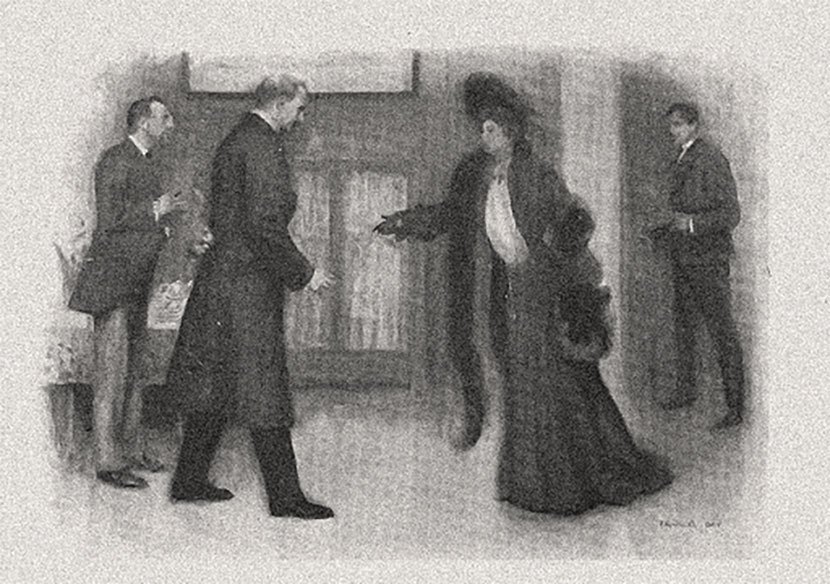Edith Wharton (1862–1937)
From Edith Wharton: Collected Stories 1891–1910

In 1904 Edith Wharton published “The Other Two,” a story singled out by many critics and biographers as the best of her nearly ninety stories.
Two decades later, in 1922, Upton Sinclair (best-selling author of such books as The Jungle) wrote about the story: “It is a perfect illustration of the extent to which the ‘divorce problem’ is a problem of our lack of sense. Mrs Wharton will, I fear, consider me a very vulgar person if I assert that there is absolutely no reason whatever why any of those four people in her story should have had a moment’s discomfort of mind except that they thought there was. There is absolutely nothing to prevent a man and woman who used to be married from meeting socially and being decent to each other.”
Sinclair’s assumptions about “Mrs. Wharton” were, we fear, based on his stereotyping of the author as a prim chronicler of upper-class American lives; she would hardly have regarded Sinclair as a vulgarian for his opinion, particularly considering that some reviewers implied she was one for publishing the story in the first place. The story’s depiction of a twice-divorced heroine and her three husbands was labeled by one prominent New York critics as “offensive” and “revolting.” Although the story is satirical in its treatment of its characters and of their social mores, Wharton (who became a divorced woman herself a few years after its publication) was hardly defending some Victorian notion of the institution of marriage.
We do know, however, what Wharton did think of Sinclair—or at least of his novels—and it wasn’t his utopian social views she objected to. A few years later, she sent him a letter about his latest book, Oil! “It seems to me an excellent story until the moment, all too soon, when it becomes a political pamphlet,” she wrote. “Had you written in favor of [political views] in which I believe, my judgment would have been exactly the same. I have never known a novel that was good enough to be good in spite of its being adapted to the author’s political views.”
You can read Wharton’s classic story about the “divorce problem,” in full, as our Story of the Week.



